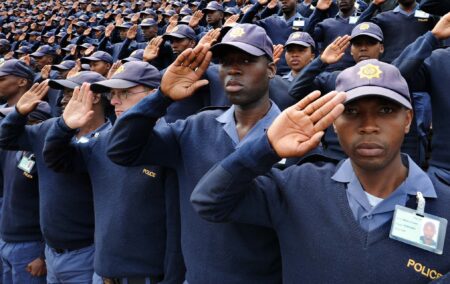The Institute of Race Relations (IRR) has urged the Government of National Unity (GNU) to “use its political capital to start introducing critical reforms on law and order that make a real difference in South Africans’ lives”.
In a statement, the IRR says that “decentralised, province-based police services can play a key role in rebuilding both trust and competence in law enforcement” and that “specialisation offers a streamlined route to tackling distinct crime crises that plague our communities across the country”.
These elements of law-and-order reform are elaborated on, in the second in a series of nine weekly papers on the #WhatSACanBe theme covering everything from public administration and labour to investment and education.
The IRR says these papers “can act as a framework and a plan for governments across the country, as well as a guide for South Africans looking for ways to improve their quality of life”.
The IRR points out that the first 100 days in government are the standard test of the effectiveness of any new administration. The GNU will face this same test, most likely after President Ramaphosa’s State of the Nation Address early next year.
IRR polling over the past decade has shown that “bread-and-butter” issues – unemployment, poverty, and insecurity – are what South Africans care about the most, and this series of papers helps show how South Africa can address them.
These papers along with the IRR’s Growth Strategy series, which shows how South Africa could reach an annual economic growth rate of 7%, supply a solid foundation for putting the country on the path of rapid and sustainable inclusive economic development for everyone’s benefit.
“The #WhatSACanBe series presents an opportunity for a whole-of-society approach in overcoming pro-poverty forces.”
The second paper in the series can be read here.
[Image: https://www.flickr.com/photos/governmentza/20590391943]


